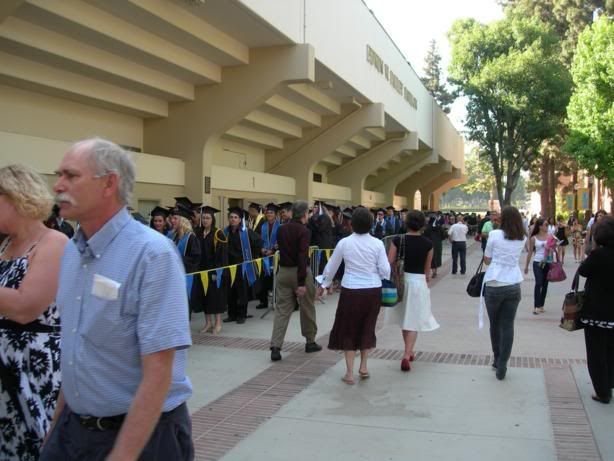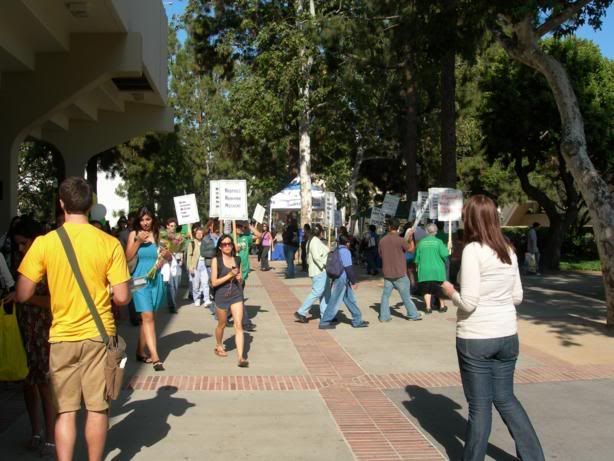Over the last few budget cycles, the inevitable became reality. We started spending more money on prisons than on higher education. Tuition (oh, sorry, that’s not tuition, those are “fees”) skyrocketed as we stopped subsidizing education for the next generation of California’s leaders. Sure, we aren’t the only state doing so, but the magnitude of our cost increases should make any one shudder.
For example, as I entered UC Berkeley to get my policy degree, the school had just tacked on a $5,000 “professional fee.” That’s just another 5 grand that will be tacked on to the loans of students that really aren’t gearing up to make millions. Sure, the federal government, over the last few years, has radically changed the student loan system in a number of beneficial ways. (Including some forgiveness for public employees) However, the sheer amount of debt for students is becoming unmanageable.
And of course, we shouldn’t be surprised to hear that we reap what we sow:
For many college students and their families, rising tuition costs and a tough economy are presenting new challenges as college bills come in. This has led to a little-known but growing population of financially stressed students, who are facing hunger and sometimes even homelessness. (NPR)
The story (listen up top) goes on to chronicle the plight of some of these students. They end up skipping meals, couch surfing through the semester, working two jobs, or being forced to drop out. These are the choices that we are offering to our students.
Schools like UCLA will work with students to help out, but the fact that many students simply won’t talk about these issues along with the growing numbers mean that not every student will get the help that they need.
Lest anybody think that we haven’t raised any taxes, just check out the fee bills of our students. Sure, call them fees with a thousand different names, but taxes are what they really are. Instead of using a more fair and progressive taxation structure, we’re piling on debt to the backs of our students, and really, our future.
I’m glad that the Chamber is spending so much time trying to protect their $1.5 billion tax cut they got last year. Perhaps they can hire some of the unemployed students in their “extra time” to help out with that campaign. I hear they are looking for some jobs.


